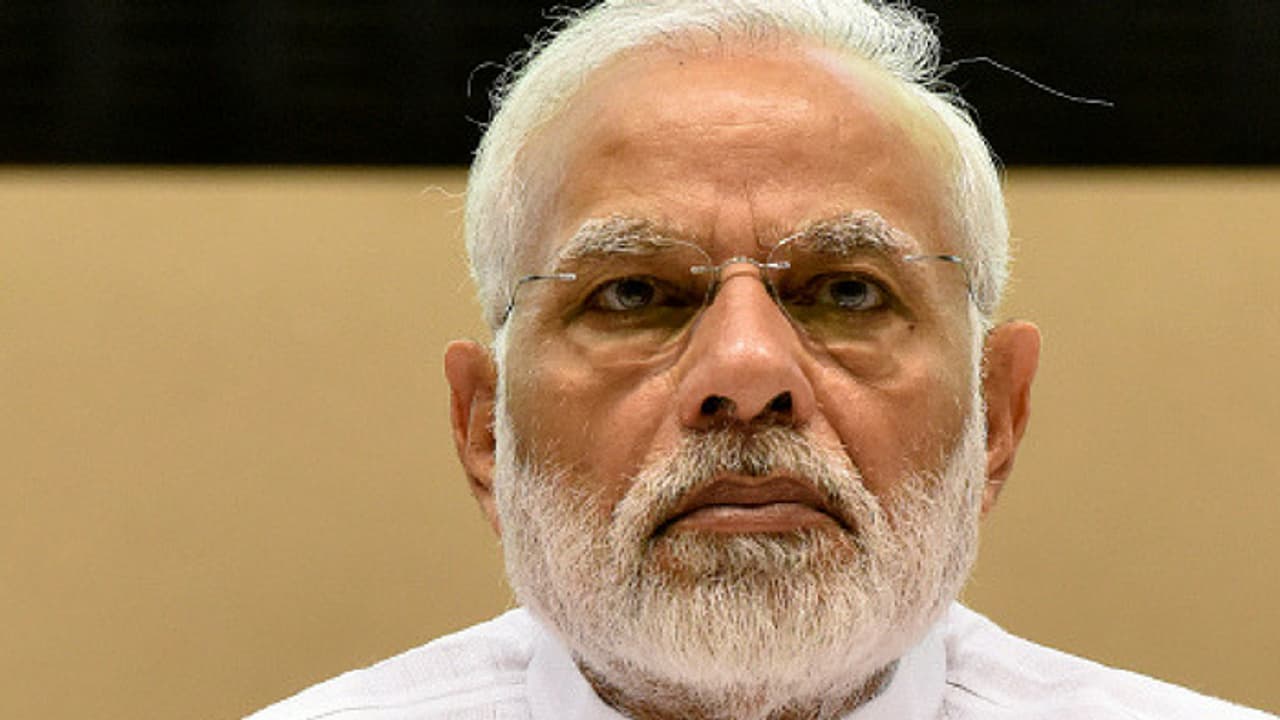Out of the 60,000 houses, close to 47,000 have been completed so far, Modi said, adding that the $350 million grant to build the houses was one of the largest grants by India in any country.
New Delhi: India handed over the first lot of houses built under a $350 million project for Indian-origin people, mostly Tamils, in Sri Lanka's tea plantation areas, on Sunday.
Prime Minister Narendra Modi joined the special ceremony through video conferencing at Dunsinane Estate in Nuwara Eliya city to hand over the houses constructed under the Indian Housing Project, the largest one by India in any country.
He said, "We have always dreamt of a peaceful, secure and prosperous future for Sri Lanka where aspirations of all for growth and development are met".
Some 404 houses were handed over to the Indian-origin people, mostly Tamils.
The Indian government is contributing to the building of homes for Indian Tamils, who are primarily employed in the tea and rubber plantations of Sri Lanka. These people, who lack adequate housing, are being helped through a grant assistance project.
The new houses along with land ownership were handed over by prime minister Ranil Wickremesinghe, high commissioner of India Taranjit Singh Sandhu, ministers Palani Digambaram, Navin Dissanayake and Gayantha Karunathilake, India's high commission. "More than 1,500 people attended the function despite inclement weather and rain," the Indian mission tweeted.
Modi said that India continues to keep Sri Lanka in a special place in its neighbourhood first policy.
Out of the 60,000 houses, close to 47,000 have been completed so far, Modi said, adding that the $350 million grant to build the houses was one of the largest grants by India to any country. "Sri Lanka has been special for us, and it will remain special," he said.
Addressing the beneficiaries, Modi said, "Your roots are in India, they have grown in Sri Lanka. You have not connected just two countries, but also touched the hearts and strengthened the hands of two great nations. Today, we are crafting a new future together, a new high in India-Sri Lanka friendship".
Prime Minister Modi said, "We are signing the agreement for the construction of the additional 10,000 houses at a cost of 12 billion Sri Lankan Rupees".
The land has already been identified for building the new 10,000 houses, he said.
"Continuing people-oriented developmental assistance, Letter of Exchange for construction of additional 10,000 houses was signed, increasing India's grant commitment in the plantation areas to 14,000 houses," the Indian mission said in a tweet.
Wickremesinghe appreciated India's commitment to partner with Sri Lanka in development projects including in building houses for upcountry areas. "I thank Prime Minister Modi. He has kept the promise he made last year," Wickremesinghe said.
Wickremesinghe, recalling the historical links between India and Sri Lanka, also welcomed Modi's suggestion today to establish direct air links between Colombo and Varanasi to facilitate pilgrims from Sri Lanka.
Air India flights between Colombo and Varanasi started in August 2017.
Indian-origin Tamils, mostly employed in tea and rubber plantations in Sri Lanka, lack proper housing.
The Tamils, mostly residing in the central hill areas of the country, were brought from India by British rulers during the 19th century to work in coffee plantations in Sri Lanka.
While Sri Lanka was faced with a 30-year long ethnic conflict initiated by Tamils residing in the northern and eastern parts of the country, those who had settled in the central hilly areas were brought there from India during the 19th century. More than a million are still associated with tea and rubber plantations. Though they have been given the Sri Lankan citizenship, housing remains a major issue for these workers employed as daily wagers.
Sri Lanka's new government led by President Maithripala Sirisena formulated a national plan of action for the plantation workers and planned for construction of 55,000 houses till 2020.
With inputs from PTI
